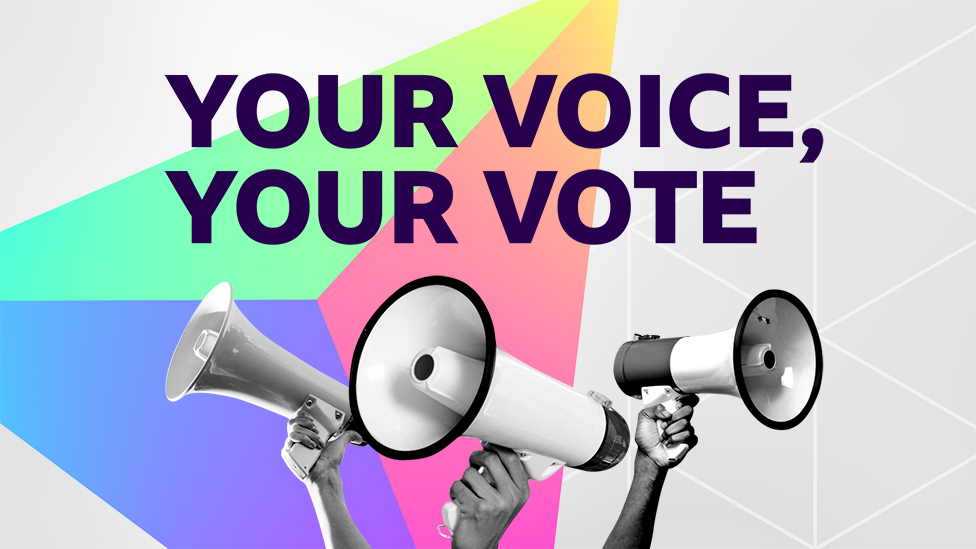'Island life is expensive, ferries and nothing for the young'
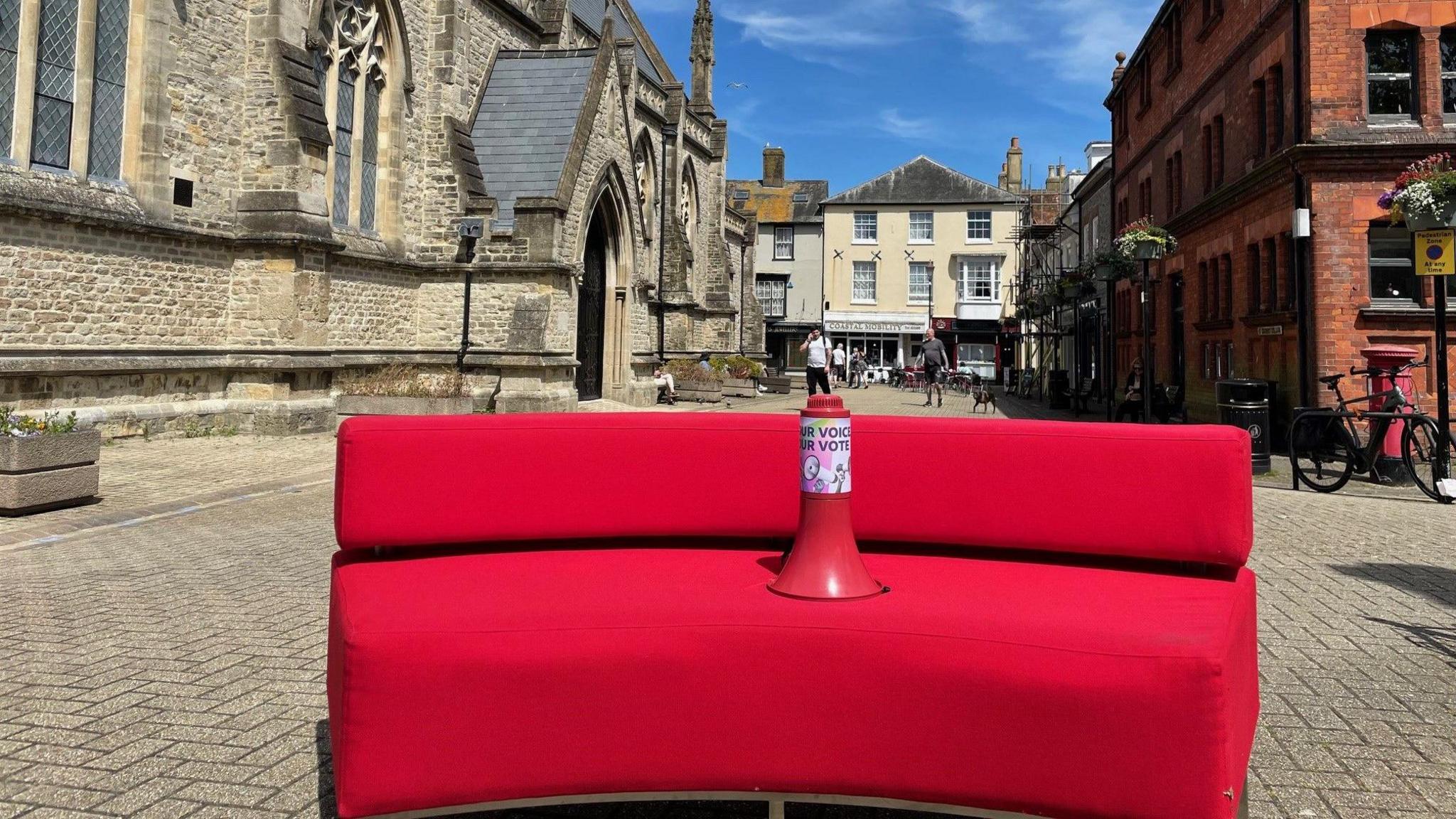
BBC South's red sofa has been in Newport, Isle of Wight, this week
- Published
Ahead of the upcoming general election on 4 July, BBC South is taking its red sofa out and about to key constituencies across the region to hear what matters most to voters.
The thoughts and concerns voiced by the public will then be put to the candidates standing in that seat.
This week, the sofa was in Newport, Isle of Wight. Until this election, the island had one MP and has been held by the Conservatives since 2001. Bob Seely had a 23,737 majority at the 2019 election.
But it was the largest constituency in the country and has now been divided into two - Isle of Wight East and Isle of Wight West. Each have six candidates fighting to win - and competition is strong.
The island is one of two "protected" constituencies in England that are permitted less than 69,724 electors.
'We need cheaper ferries'
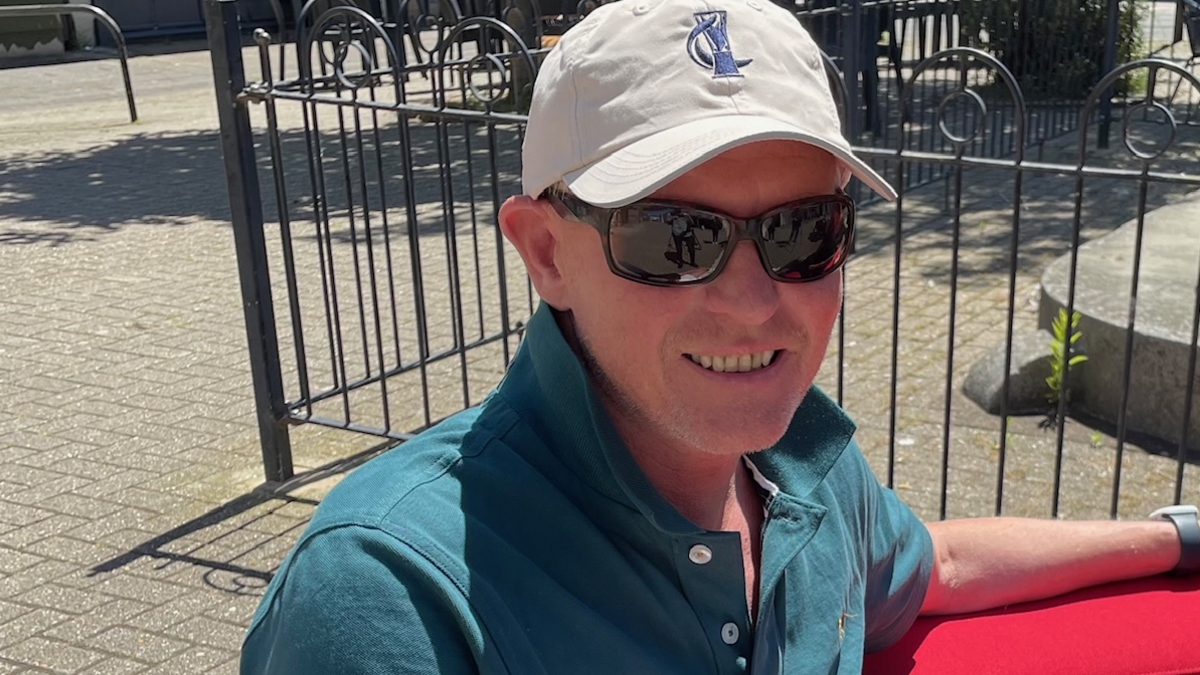
Richard Bendy said more needed to be done to help people find work outside of the summer months
Richard Bendy said he was concerned not enough was being done to help the Isle of Wight through the winter.
"I have a daughter who struggles to find work out of the main tourist season," he said.
He raised the issue of ferry prices too.
"It's cheaper to go to France than get a return ferry here I think, it's going to put people off," he added.
'It's difficult to get off the island'
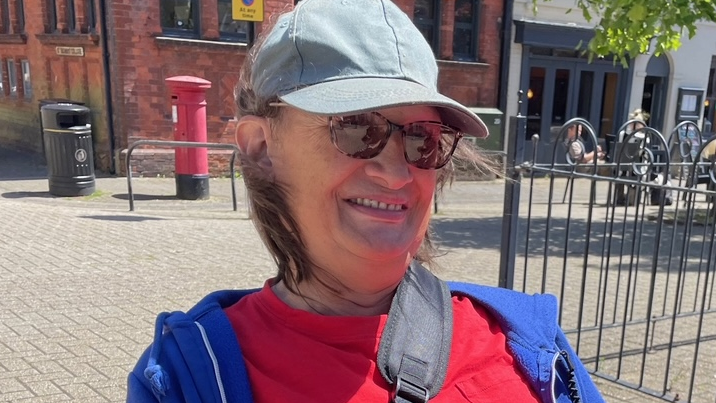
Martine Lewis said she wanted to see improvements to public transport
Martine Lewis said transport infrastructure was her issue.
As a volunteer at a rural tourist attraction she said her hours were dictated by the fact certain buses only run two or three times a day.
"You're kind of stuck," she said.
And she also mentioned ferry prices.
"It's difficult to get off the island. Islanders should have cheaper fares than holidaymakers."
'It's boring for teens'
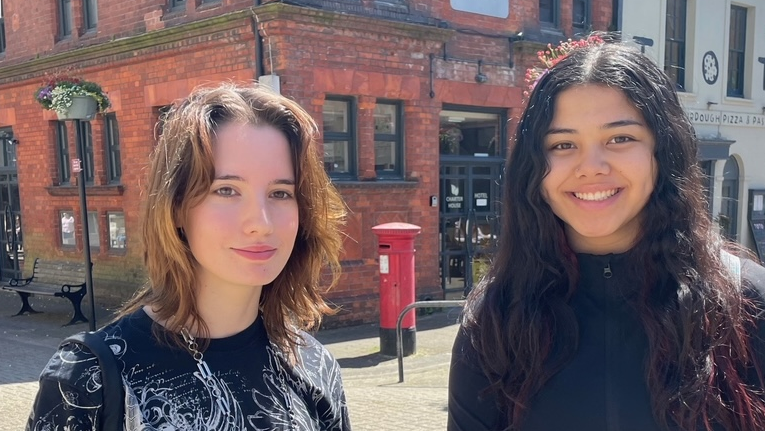
Clothes shops have closed down on the island in recent years, Susanne Richardson (left) and Annie Savage said
Susanne Richardson and Annie Savage are both 18.
They said the island is a boring place to be a teenager.
Many clothes shops they would like to go to have closed down over the past few years, they added.
'We can't keep our second home here'
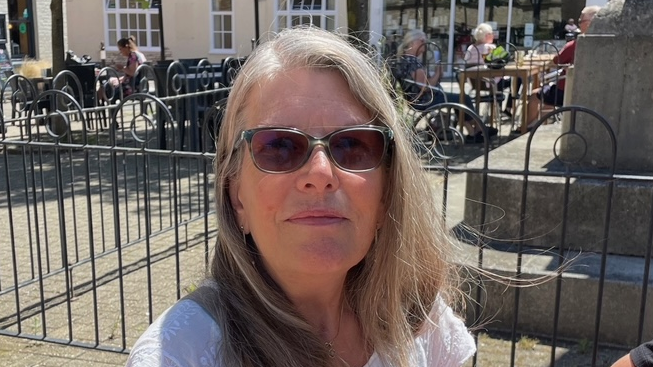
Jill Hallsworth is moving off the Isle of Wight because of increased costs
Jill Hallsworth is a second home owner who is selling up because of the increasing council tax and ferry costs.
"We spend our money when we are here, we eat out a lot, buy from local traders and use local services but we can’t continue to keep our property here," she said.
"I feel sorry for the islanders who might have to travel at a certain time of day or for a hospital appointment."
What do the Conservatives say?
Conservative Bob Seely said it was important to look at how the ferry companies are structured.
"I produced evidence of what is happening with pricing and reliability and submitted it to parliament. We are going to have an investigation into the ferries - I'm the only candidate who has got the promise to do that," he said.
What do Labour say?
Labour candidate Richard Quigley said he had been promised a Competition and Markets Authority (CMA) review if his party run the government.
"The ferry companies keep getting passed from one private equity business to another and every time fares go up, so we need to take it out of private equity," Mr Quigley added.
What do the Lib Dems say?
Liberal Democrat candidate Nick Stuart said improved regulation and a minimum service obligation was essential.
"Around Europe and in Scotland, ferries like this - essential services - are subsidised. That needs to happen here," he said.
What do Reform UK say?
Reform UK candidate Ian Pickering said separating the ferry companies into two business elements - the sailing and landing elements - was their plan.
He said: "We can then invite other operators to the sailing aspect of it. That will increase competition and drive down prices."
What do the Greens say?
Green candidate Cameron Palin said privatisation had not worked.
Referring to their manifesto, he said: "We are being bold, [ferry companies] need to be nationalised and be a public service."
What do the ADF say?
Alliance for Democracy and Freedom (ADF) candidate Rachel Thacker said the ferry service needed more regulation.
"They need to introduce capped costs and a minimum standard of crossings per 24 hours. The Isles of Scilly have their ferry subsidised and we need the same," she said.

What really matters to you in this general election? What is the one issue that will influence your vote? Click the button below to submit your idea, and it could be featured on the BBC.
